Not so long ago, politicians had “favorite” economists. Margaret Thatcher’s was Milton Friedman. John F. Kennedy’s was probably John Kenneth Galbraith. President Bill Clinton had a Nobel Prizewinning economist, Joseph Stiglitz, in residence at the White House for his entire first term and was said to light up at the mention of John Maynard Keynes.

You don’t hear of many favorite economists today. Political leaders still have economists around, but it’s difficult to remember the last time one publicly and proudly followed their advice. Donald Trump, as ever, is the extreme case. He seems to take some pride in doing the exact opposite of what mainstream economists would prescribe—on the wisdom of trade wars, say. But if the economics profession were being honest with itself, it would have to admit that the problem goes deeper than the gleefully heterodox President Trump.
If politicians in the advanced economies aren’t spending much time listening to economic gurus anymore, that’s partly because economists haven’t had very useful solutions to the big problems politicians are being asked to fix. Most failed to predict the global financial crisis, and the core macroeconomic models taught for decades have been coming up short ever since. Economists don’t even have answers to the challenges facing central bankers, which for many today includes getting the inflation rate back to 2 percent.
I saw the failures of traditional economic prescriptions firsthand in 2016 while chairing a commission on inclusive growth sponsored by the 30 largest cities in the U.K. The first public hearing was in the city of Sheffield, in the north of England, just six days after the referendum on the U.K.’s membership in the European Union. Sheffield had been an unemployment black spot throughout the 1980s and 1990s, following the collapse of its steel and coal industries. Local leaders had dedicated themselves to following the modern recipe for economic revival, redeveloping the city center and expanding the universities to give it one of the greatest concentrations of students in the U.K.
Denne historien er fra August - September 2018-utgaven av Bloomberg Markets.
Start din 7-dagers gratis prøveperiode på Magzter GOLD for å få tilgang til tusenvis av utvalgte premiumhistorier og 9000+ magasiner og aviser.
Allerede abonnent ? Logg på
Denne historien er fra August - September 2018-utgaven av Bloomberg Markets.
Start din 7-dagers gratis prøveperiode på Magzter GOLD for å få tilgang til tusenvis av utvalgte premiumhistorier og 9000+ magasiner og aviser.
Allerede abonnent? Logg på
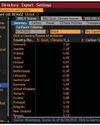
See Which Countries Are Falling Behind On Climate Change
Under the Paris Agreement, 190 countries and the European Union pledged to take steps to hold the global temperature rise to less than 2C (3.6F) from preindustrial levels—and preferably 1.5C.
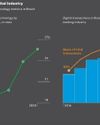
Billionaires Vie for the Future of Brazilian Finance
An escalating battle between two billionaires is upending the financial community in São Paulo, Latin America’s wealthiest city.
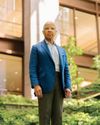
Ford Foundation's Darren Walker: ‘We Have to Get Uncomfortable'
DARREN WALKER, 62, disrupted his Wall Street life more than 25 years ago when he left what is now UBS Group AG to volunteer at a school and eventually pursue a career in community development and philanthropy. Since 2013 he’s been at the pinnacle of the philanthropic world as president of the Ford Foundation, created by the family of automaker Henry Ford during the Great Depression to advance human welfare.

Fueling the Ener Transition
I MAY BE BIASED, but some of the most important research and data on the Bloomberg terminal lies in one of its lesser-known functions: {BNEF }

Dig Into Analysts' Estimates for Disruptive Companies
THE PANDEMIC ERA generated a whole wave of disruptive companies as it accelerated the introduction of new products and services in areas including artificial intelligence, digitization, electronic payments, online meeting platforms, and virtual currencies.
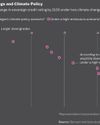
Climate Risks Come for Sovereign Credit
FOR YEARS climate scientists have warned about the ferocious wildfires and hurricanes that are now overwhelming many communities. Today alarms are ringing about a related financial danger: risks lurking within government bonds, the biggest part of the global debt market.

Responsible-Investing Pioneer Lydenberg Says ESG Needs An Upgrade
STEVE LYDENBERG’S passion for social change was inspired by anti-Vietnam War demonstrations, consumer boycotts, and the movement to divest from apartheid South Africa. But he didn’t take to the streets. Instead, Lydenberg turned to the world of finance to help catalyze societal change.

Engine No. 1's Grancio: ‘People Will Appreciate an Economic Argument'
ENGINE NO. 1 sent shock waves across corporate America in May when the fledgling investment firm won a boardroom battle with Exxon Mobil Corp., securing three seats on the oil and gas giant’s board after purchasing only about $40 million of its stock.
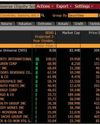
Find Out Which Companies May Ramp Up Payouts After Covid
AS THE PANDEMIC DISRUPTED business last year, many companies cut or suspended dividends. Which will boost their payouts when economies pick up again?
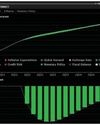
Get Into the Minds of Central Bankers as They Navigate Shocks
HAVE YOU EVER WONDERED how central bankers forecast the impact of shocks on the economy?